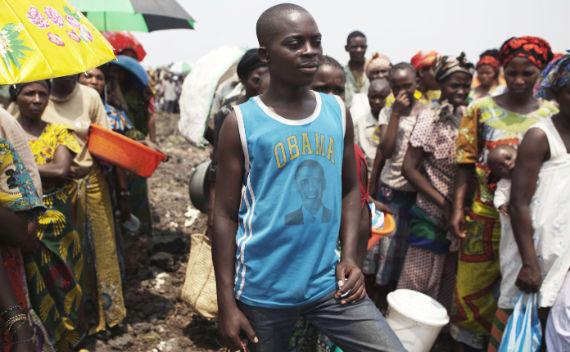Friedman’s List: What It May Mean Below the Sahara
More on:

Thomas L. Friedman has put together a “back of the envelope” list of “not so obvious forces” that shaped the North African events of the past month. His list includes “The Obama Factor,” the fact that despite a history of slavery and racism, the Americans elected an African American president; “Google Earth,” which graphically maps the maldistribution of living space in places like Bahrain; “Israel,” where the highest political figures have been prosecuted for sexual predation and corruption, all of which Al Jazeera has covered abundantly; “Beijing Olympics,” highlighting Chinese progress and North African backwardness; and the “Fayyad Factor,” where the Palestinian Prime Minister asks to be judged on how well he delivers essential services.
I had thought that the revolutionary wave in North Africa would have little resonance in sub-Saharan Africa, despite extensive speculation about it in Lagos and Kampala. My thinking was that with weak national identities and fragmented social structures there is usually not the necessary cohesion for a Tunisia or Egypt-like challenge to existing authority. However, in light of Friedman’s “not so obvious forces” argument, now I am not so sure. For a Nigerian or a Ugandan, Obama’s election does show that, especially from an African perspective, there is the possibility of “radical” political change, which is how many perceive an African American in the presidency. Certainly wealth is dramatically maldistributed in sub-Saharan Africa, and North Africa shows that people can do something about it. Bringing high-level political figures to justice is largely a dream in most of sub-Saharan Africa, though it can happen, e.g., Charles Taylor’s trial before the International Criminal Court. Further, many Africans are acutely aware of the progress of China, to say nothing of Malaysia, Singapore, Thailand, or Taiwan in comparison with the continent’s relative stagnation. And, finally, few governments in sub-Saharan Africa are very concerned with providing services to their citizens, unlike, allegedly, Fayyad. So, maybe North Africa could unleash “not so obvious forces” south of the Sahara that we do not yet see. With 17 elections this year raising the political temperature and the hypothetical possibility of real change, they may appear in some form.
More on:
 Online Store
Online Store